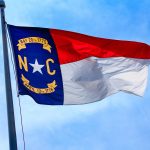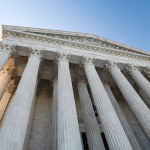The Goldwater Institute along with the Dallas Market Center—a private business in Texas—filed a friend of the court brief today in the closely-watched case of V.O.S. Selections and State of Oregon v. Trump, urging a federal appellate court to declare the “Liberation Day” tariffs unconstitutional. These tariffs—which raise taxes on a wide variety of imported goods—were established by a unilateral order from the White House rather than by Congress. But under the U.S. Constitution, only the people’s elected representatives—not the President—have the “power to lay and collect taxes, duties, imposts and excises.”
Months ago, in briefs filed before the Court of International Trade, which has authority over tariff cases, the Administration argued that it has power to set tariffs without Congressional input under a statute called the International Emergency Economic Powers Act, or IEEPA. That’s a law passed in the 1970s that allows the President to control certain assets of enemy countries in times of emergency. But in May, that court rejectedthe notion that IEEPA gives the President power to set tariffs, holding that it only permits the President to “regulate” the “importation” of certain things—a far more limited power. And to interpret IEEPA as broadly as the White House claims would risk violating the Constitution, since the nation’s fundamental law gives Congress alone the power to set taxes.
The federal government appealed the case to the U.S. Court of Appeals for the Federal Circuit, and in the brief we filed today, we explain the background of the Constitution’s limitations on the tariff power. The American founders were well aware of the risks involved in the executive branch unilaterally imposing taxes with the stroke of a pen. That power, after all, had been abused for a century before the American Revolution, by British monarchs such as James I and Charles I. They sought to impose so-called “prerogative taxes” so that they could fund their activities without having to ask Parliament for money. The consequence was a century of civil war in England, which resulted in the overthrow of two kings before 1690.
And it wasn’t just taxes in England. Charles I’s successor, Charles II, also sought to impose taxes on the American colonies without the approval of colonial legislatures. When colonists didn’t pay up, he revoked the charters of several colonies and appointed a dictator named Edmund Andros to govern all of New England—with power to lay taxes without the people’s consent. In 1689, Andros, too, was overthrown.
A century later, after Americans had rejected British rule—largely due to Parliament’s imposition of taxes on imports—the framers of the U.S. Constitution remembered the dismal history of the monarchy, and sought to ensure that the taxing power would forever remain exclusively in Congress’s hands. They gave it, and it alone, the power to establish taxes and tariffs.
Unfortunately, in the twentieth century, Congress began adopting laws that purported to give the President the power to impose tariffs or other kinds of trade restrictions. But even those laws set forth specific limits. Normally, they imposed tax rates, but then gave the White House a kind of on/off switch, allowing it to turn off the tax that Congress had set. That’s nothing like what’s going on in this case, where the White House claims power to impose a tax that never existed before, and to decide on its amount—a clear violation of the Constitution’s separation of powers principle. Thus, even if IEEPA gives the President the power to impose taxes, it’s unconstitutional.
The reason America’s founders separated government powers in this way is to protect individual freedom. As James Madison wrote in The Federalist, “The accumulation of all powers, legislative, executive, and judiciary, in the same hands, whether of one, a few, or many, and whether hereditary, self-appointed, or elective, may justly be pronounced the very definition of tyranny.” The more Congress tries to give away its lawmaking power—and its responsibility—to the White House, the more all our freedoms, economic and personal, are at risk.
You can read our brief here.










